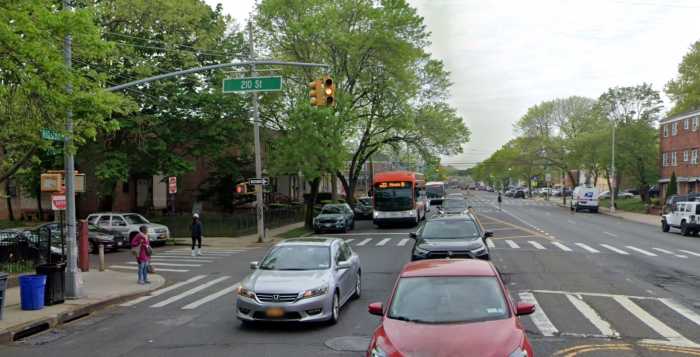By Corey Bearak
Last month city Comptroller Bill Thompson successfully pressured a major energy company to adopt “a policy that limits its domestic and foreign subsidiaries’ future business activities with terrorist-linked countries.” The comptroller worked with fellow trustees of the New York City Police and Fire Department Pension Funds to submit a shareholder resolution urging ConocoPhillips to review its operations in Iran and Syria through its UK subsidiary, Conoco Ltd.
This episode highlights how the city can leverage its resources to fight terrorism and those who support it. Former Queens City Council Speaker Peter Vallone’s proposed legislation from December 2001 does just that; unfortunately no Council member picked it up in 2002. This bill takes aim at firms and nations that support terrorists and merits reintroduction and passage this year.
Thompson’s office reported the Police Fund has 386,120 shares worth $25.4 million in holdings and the Fire Fund has 142,784 shares worth more than $9.4 million in ConocoPhillips. (The city’s five pension funds have about 2.5 million ConocoPhillips shares worth more than $164 million.)
“ConocoPhillips will not approve business ventures in sensitive countries unless it is convinced that it can do so legally and within the spirit of U.S. law,” ConocoPhillips stated in its letter to Thompson. “Accordingly, our policy would not permit the commencement of business activities in a sanctioned country by either a domestic or foreign subsidiary.”
Thompson also submitted a shareholder proposal on behalf of the police and fire pension funds with the Halliburton Co. and plans to submit one with the General Electric Co. In each case, the comptroller aims to prompt them to examine relationships with terrorist-sponsoring nations.
To his credit, Thompson plans more such “assaults” that use the proxy power of the city pension funds. A large shareholder such as the combined New York City pension funds can wield its power to influence significant changes in corporate governance.
The use of the city’s pension funds to press companies and even nations to become better actors is not novel. Former state Comptroller Carl McCall and his successor, then City Comptroller Alan Hevesi of Queens, joined with pension officials across the United States to get German and Swiss banks to pay reparations to Holocaust victims and others who lost assets seized illegally during World War II.
Comments to The Jewish Week by Malcolm Hoenlein, executive vice chairman of the Conference of Presidents of Major American Jewish Organizations, highlight the need to leverage more city resources to promote good corporate behavior. Hoenlein told writer Adam Dickter: “Many companies are essentially end-running the law by claiming they are not (making these investments) and then doing it through subsidiaries.”
Why not make it municipal policy to restrict city government business with banks and companies doing business in nations harboring foreign terrorist organizations? That was the aim when Vallone and former Bronx Borough President Fernando Ferrer teamed up in a parting shot at terrorists with a few weeks left in their terms in 2001.
Vallone introduced Int. No. 1017 on Ferrer’s behalf to address the organizations that perpetrate terror worldwide and are allowed to operate, raise funds and engage in business that provides income in certain nations. It also expresses that New York City finds this conduct morally repugnant.
Since they conceived the legislation in the waning days of their terms, the two public servants had called on the Bloomberg administration and the new City Council to make passing this anti-terrorism legislation a priority.
That November Ferrer developed and offered to Vallone sweeping legislation to bar city funds and contracts going to financial institutions and contractors that do business with nations that harbor “foreign terrorist organizations.”
The secretary of state designates foreign terrorist organizations, or FTOs, in consultation with the attorney general and secretary of the treasury pursuant to the Immigration and Nationality Act. In October 2001, Secretary of State Colin Powell recertified the designation of 26 of the 28 foreign terrorist organizations whose designations were due to expire. He also combined two previously designated groups into one.
Though the list is to be updated every two years, a recent check of the U.S. State Department’s Web site, www.state.gov/s/ct/rls/rpt/fto/, yielded no update. A worthy but more limited bill, Int. No. 68, sponsored by Democratic Forest Hills Councilwoman Melinda Katz, prohibits support and business dealings with Hamas, Hezbollah or Islamic Jihad.
The Ferrer-Vallone legislation follows a legislative tradition that included implementing the Sullivan and MacBride principles. The Sullivan principles involved an economic boycott of the former apartheid regime that ruled South Africa. The MacBride principles applied to Northern Ireland. The legislation merits reintroduction this year.
Corey Bearak is an attorney and adviser on government, community and public affairs. He is also active in Queens civic and political circles.



































